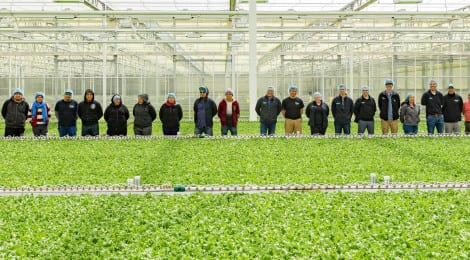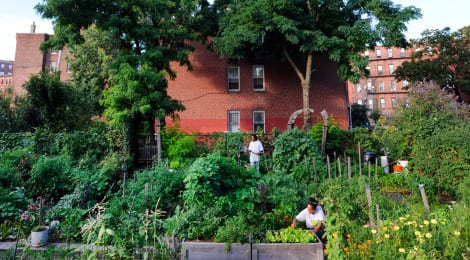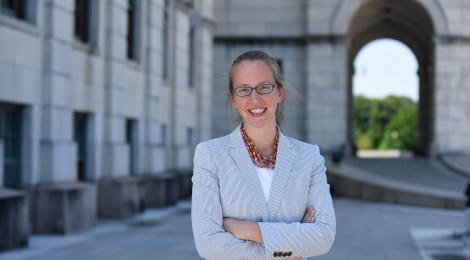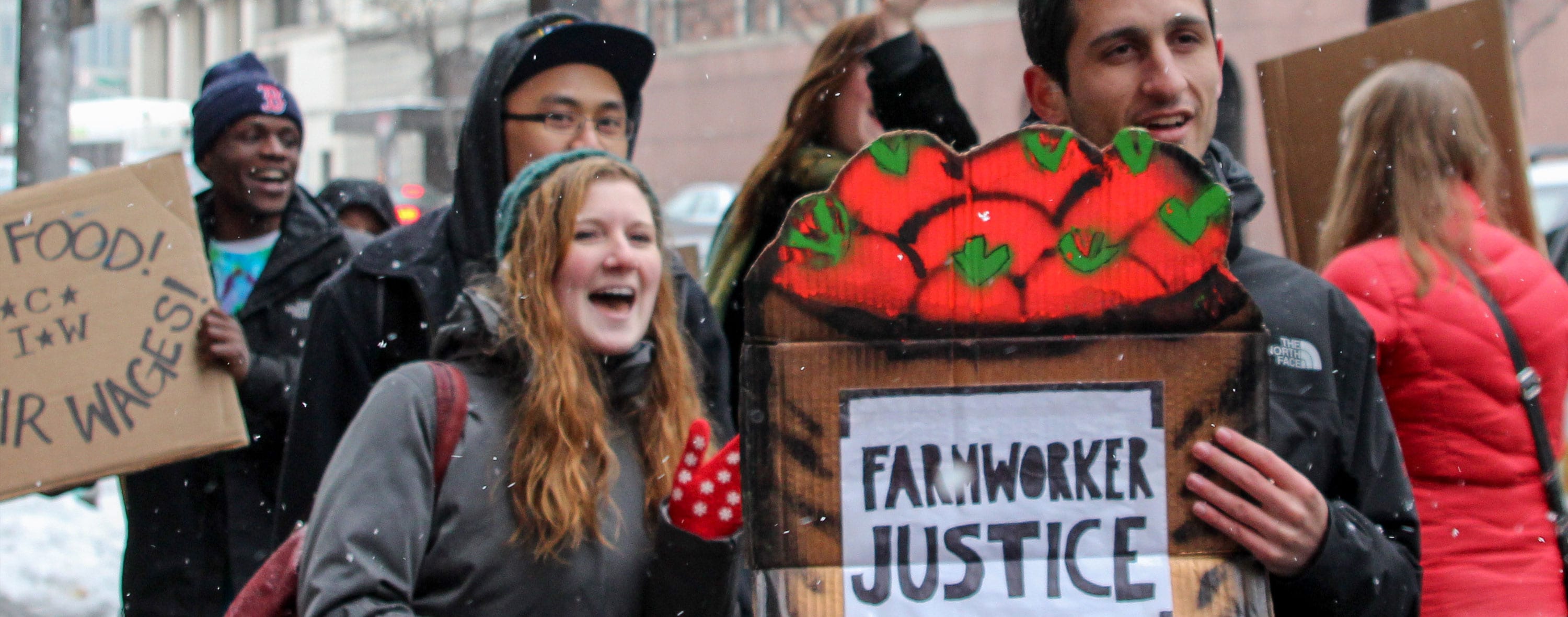
Grantee Profile
Real Food Challenge
Tricia Kiefer is a student at Northeastern University who cares about the way she eats. She’s passionate about the importance of consuming honest, healthy, and local food as a way to support a sustainable food system and create social change.
“I had a community garden on Symphony Road, and it felt empowering to grow my own food to make dinner,” shares Tricia. She was inspired to explore ways in which her school could provide more healthy options from local sources.
She’s not alone. With the increasing awareness of labor, environmental and health issues, the food movement has entered the spotlight on college campuses nationwide.
Luckily, Tricia knew the perfect solution. She had just completed an internship with the Real Food Challenge (RFC), so she knew about its campaign to help colleges and universities shift $1 billion in existing food budgets towards local, fair, ecologically sound and humane food, also known as “real” food. Tricia began working with other Northeastern students to launch the RFC campaign on campus.
“Food is a beautiful way to make change because it has so many components — the labor issues, environmental issues, local economy issues of small farmers versus conventional farms. Food is a personal way to make change because you’re so directly in touch with it,” says Tricia.
The goal of the campaign is to encourage universities to sign the Real Food Campus Commitment: a pledge to purchase at least 20 percent of their food from local, fair, humane, and sustainable sources by 2020. Students advocate for the university to adopt the Real Food Calculator, a transparency tool that offers a consistent national metric to calculate the percentage of just and sustainable food being purchased by an institution.
Students managed the campaign, while RFC organizers and staff helped coordinate student efforts with guidance and training as to how to communicate with school administrators. A grant from the Kendall Foundation is helping RFC grow its presence on college campuses across New England.
Tricia was enthusiastic and impassioned, but knew that the process of convincing the university could prove challenging due to the complexities of dining services at a university as large as Northeastern.
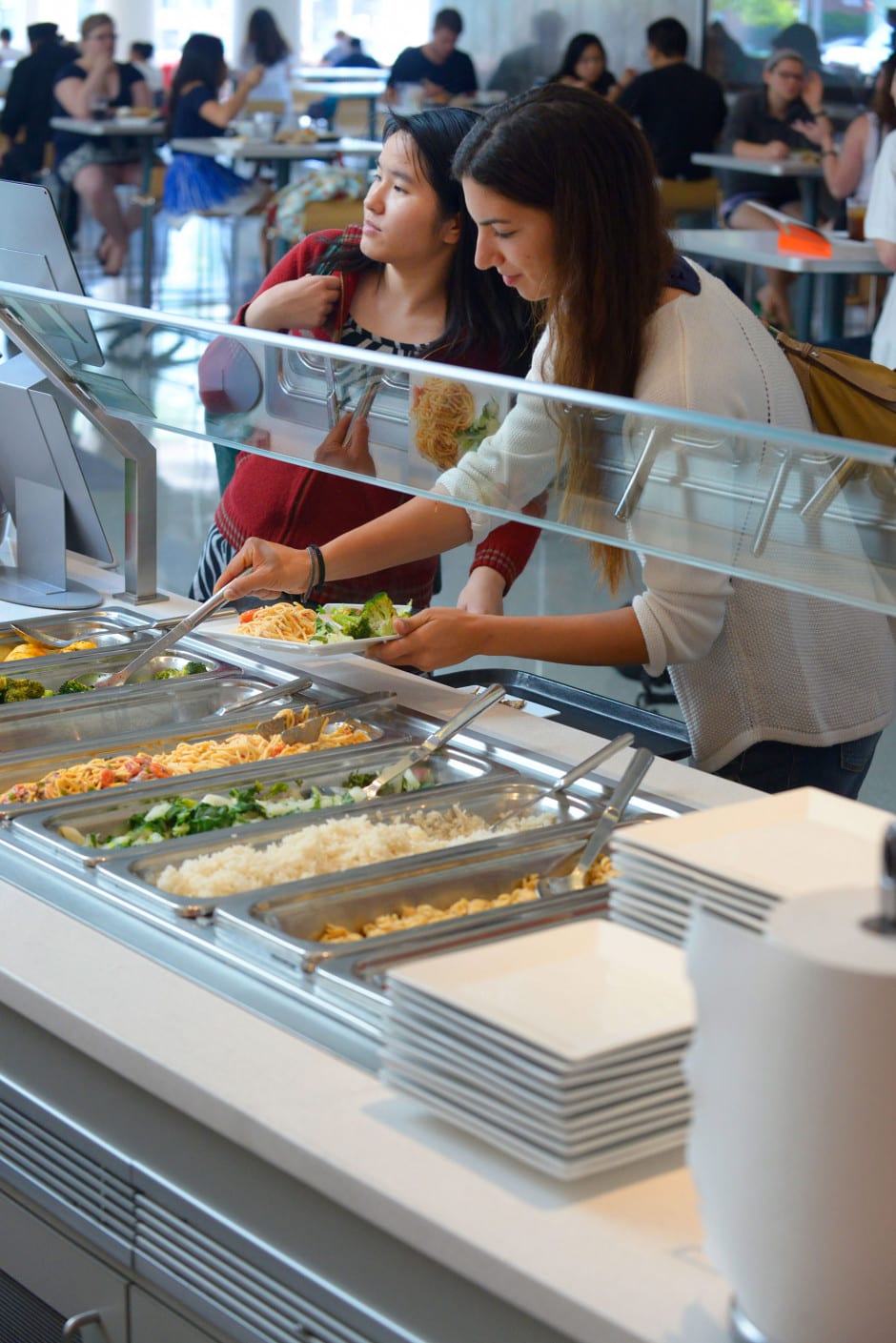
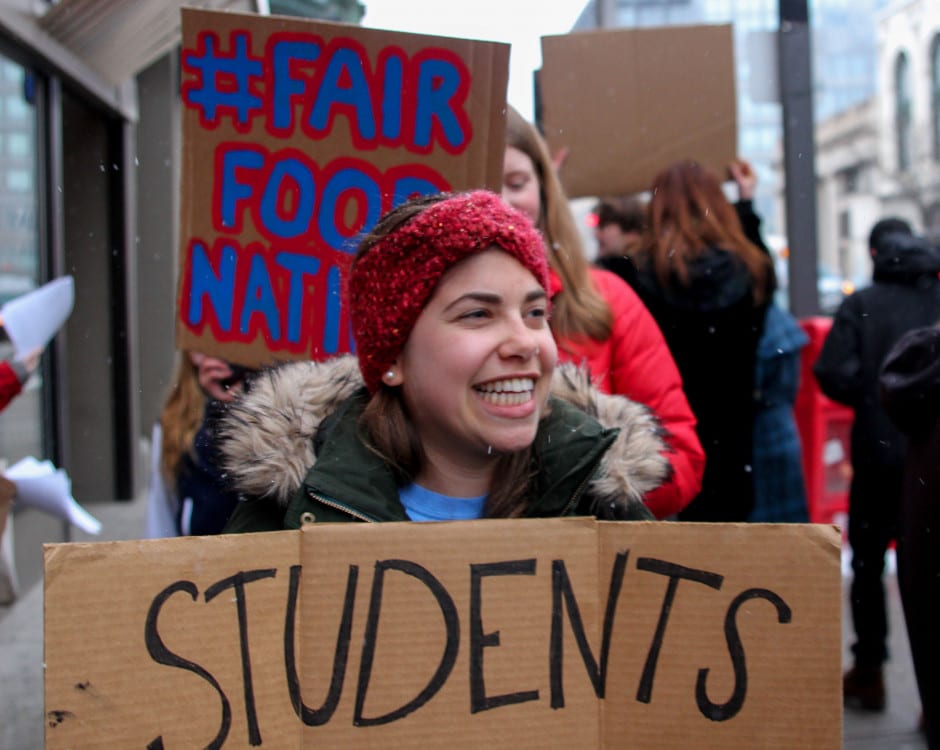
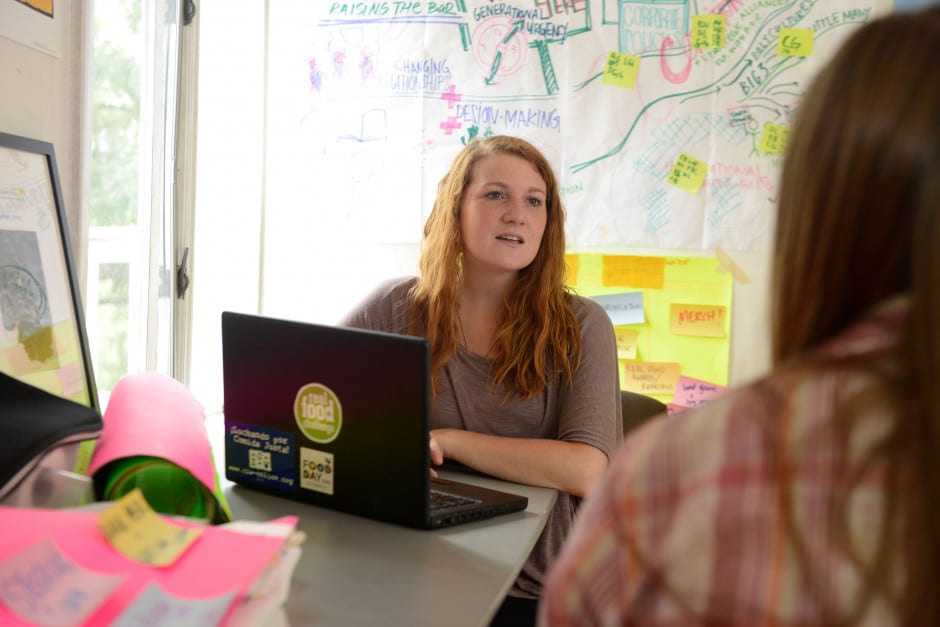
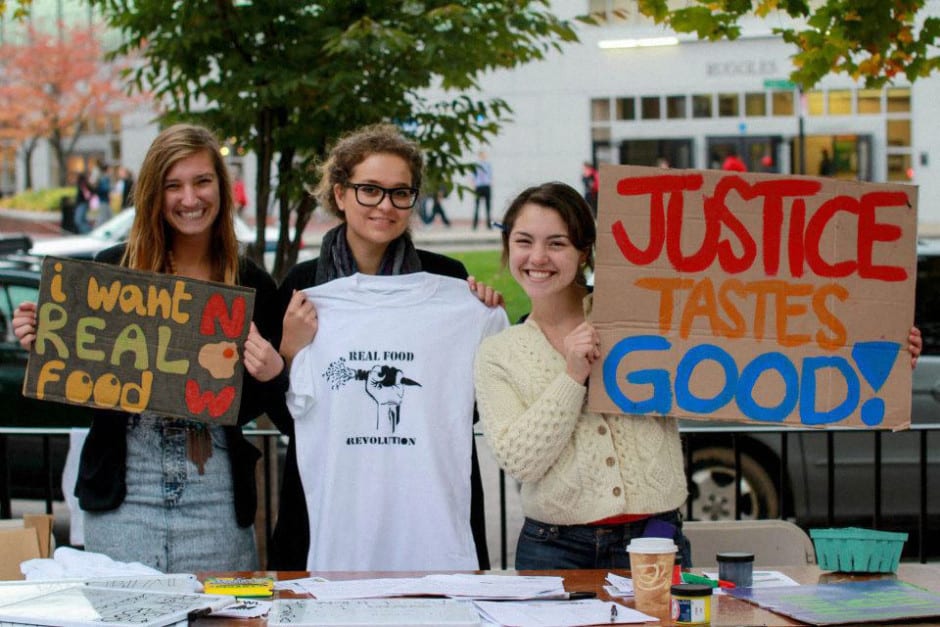
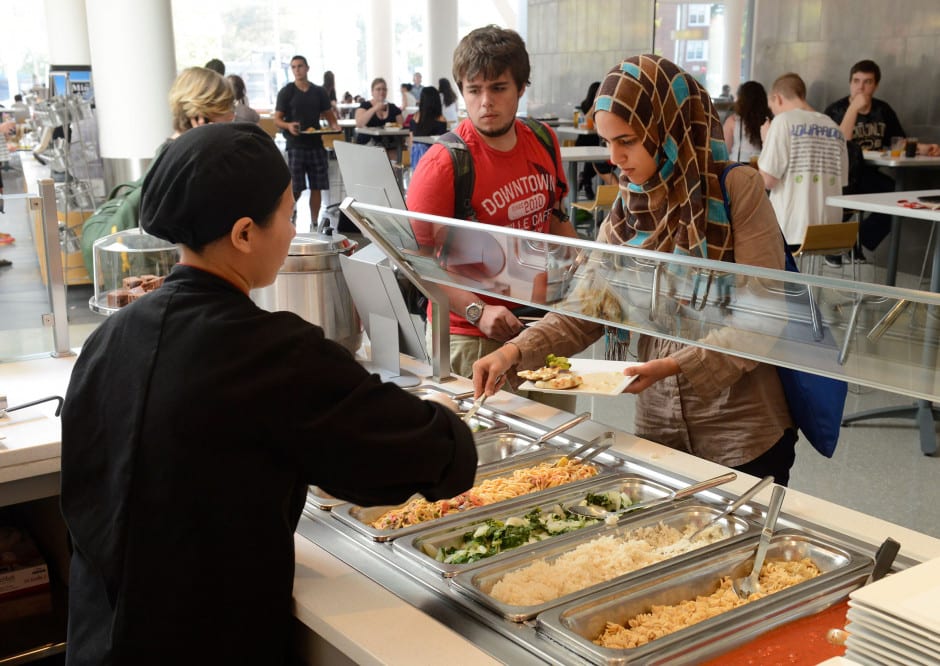
To kick start the campaign, RFC students organized a campus-wide Food Day event to generate excitement and establish the group’s presence. Then, they organized important contacts by creating a student coalition. “We mapped out people in power whose help we would need to achieve our goal: professors, food service authorities, school administrators. We identified key players at Northeastern and started getting in touch with them.”
Tricia and her fellow students met repeatedly with school administrators to discuss the numerous sustainability measures already in place within Northeastern’s Dining Services and how the Real Food Challenge could supplement these programs. They were able to explain the benefits of using the Real Food Calculator and sourcing more local, real food.
Meanwhile, the RFC group continued to cultivate a giant student coalition. “Building student support was a big part of the puzzle,” says Tricia. The “real food” petition had 800 signatures and support from 25 student organizations. “This demonstrated that our campaign wasn’t about four students wanting better food on campus.”
Tricia and her peers kept going back to the university with new proposals and research. “Real Food Challenge enabled us to sit down and have frank, open conversations about what this would look like,” she explains. “A big part of this process was working hard to put ourselves in their shoes, and understand the pressures they face as well.”
Beyond the campaign on campuses, RFC maintains a national network where student activists connect with their peers to grow the “real food” movement. When Tricia and her peers needed motivation, RFC staff organized a Skype session with RFC students from UMass Amherst so they could share their experiences.
As school administrators continue to learn about the benefits of the Real Food Campus Commitment, Northeastern is setting itself up to become the first school in Boston to invest in a sustainable food economy. Successful campaigns at a growing number of other universities have led to negotiations with Chartwells, one of the four most prominent food service companies in the country, seeking transparency and other purchasing requests at a national level.
“We saw that this isn’t just about Northeastern; this is about all colleges across the country. We are part of a larger movement,” Tricia says. “I take a step back, and I am blown away by the impact we have. I see that the Real Food Challenge is making real change.”
Learn more: Real Food Challenge
Food is a beautiful way to make change because it has so many components -- the labor issues, environmental issues, local economy issues of small farmers versus conventional farms. Food is a personal way to make change because you’re so directly in touch with it.
